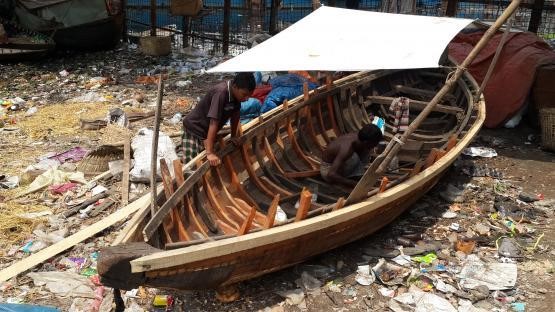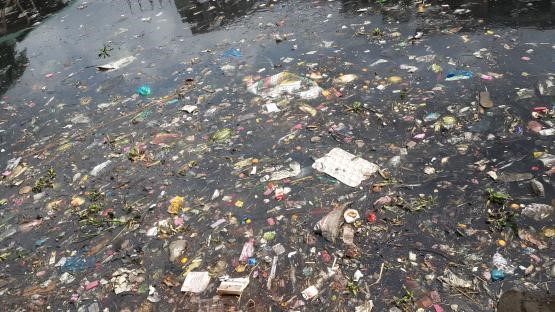

Shah Alam comes from the south of Bangladesh, where he fixed river boats for a living. He lived on the banks of a healthy vibrant river. But the waters kept rising and his home collapsed into the river due to erosion. His hope was that the opposite bank of the river would rise and enable him to rebuild across the river – but 25 years later he still can’t return to rebuild his home.
He still lives and works by a river. But instead of the clean, fresh water of his home, he now repairs boats on the Buriganga river – a biologically “dead” river in the Bangladesh capital, Dhaka. A river with a bed of 10 feet of plastic.
You can smell the stench of decay. Even though rivers naturally replenish themselves, it will take years to pull out the plastic and give the river a chance to heal itself.
Shah now works on a mound of trash. He works steadily, having set up a tarpaulin to protect him from the intense heat of the sun. He says he misses his home and wishes to return, but there is no house to go back to and no chance to rebuild as the riverbanks in his hometown continue to crumble.
Instead, he lives in this city of over 20 million people across the Buriganga river, where he works repairing boats with his wife and three of his four children. He had to give his eldest daughter to marriage at 14 and his oldest son works in a garment factory. He says with pride that the two youngest ones are, “still reading”. They have the privilege their older siblings did not – the privileged to be in school.
It’s hard to even begin to calculate the cost to Shah and his family of losing their home and their necessary migration to the city. He and his children did not cause the climate crisis, but they are suffering the consequences. It’s the changing climate that is eroding the banks of many rivers in Bangladesh, forcing people like Shah to abandon their homes and communities to move elsewhere.
ActionAid Bangladesh is working to save the Buriganga and support the people that live and work on the dead river to build resilient lives, so that they can thrive even in the poorest and most challenging of circumstances.

